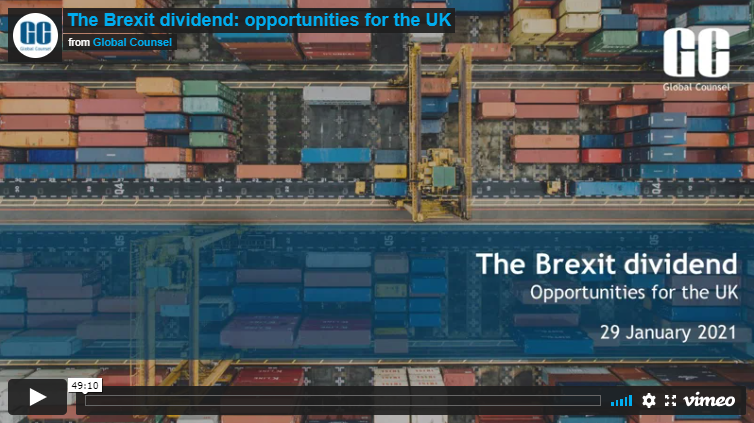This week, two events have returned the #Brexit deal's impact on Northern Ireland to the headlines.
Our Adviser Denzil Davidson has written a blog and Twitter thread about the political and social implications.
Read on to find out more (1/)
(1/)
Our Adviser Denzil Davidson has written a blog and Twitter thread about the political and social implications.
Read on to find out more
 (1/)
(1/)
First, the European Commission nearly used the emergency article 16 of the Northern Ireland Protocol to prevent covid vaccines going from Ireland to Northern Ireland (2/)
Second, the UK Government withdrew staff checking agri-food products from the port of Larne after threats to their safety (3/)
The European Commission’s general attitude to the disruptions to trade created by Brexit, in short, is: 'this is what you wanted; suck it up'. (4/)
But, in Northern Ireland, trade is not just about economics and business adaption. It is about identity and belonging: it is hard to think of something more visceral than banning British soil from Ulster. (5/)
The UK and the EU agreed to avoid a hard border for goods between Northern Ireland and Ireland because it was recognised that it was a threat to nationalists’ sense of belonging and a threat to peace. (6/)
But although a sea border may be less visible than a land border, the Belfast/Good Friday Agreement requires a “parity of esteem” for the two communities, a parity unionists feel they have lost. (7/)
Some hoped that the unionist community would simply accept the protocol and embrace its opportunity: a NI with open access to goods from the EU and the UK.
But three things make this unlikely… (8/)
But three things make this unlikely… (8/)
1. In terms of identity and belonging, the opportunity is small compensation for trade barriers with Britain (9/)
2. Political incentives for political parties in Northern Ireland encourage unionists to keep this feeling of injury raw. Almost all its political parties compete for votes within a community, not between them (10/)
3. The protocol’s trade contents depend, broadly, for their renewal on the Northern Ireland Assembly’s consent every four years. This is a strong incentive for both communities’ parties to drive up their vote share by making each election a polarising, binary choice (11/)
The European Commission did not legally trigger this article, but by almost doing so they have lowered the political bar for its use. (12/)
The British government are clearly right to point out that there is a problem with the protocol’s implementation, but their authority is undermined by their inability to describe Northern Ireland’s situation frankly and consistently (13/)
A further worry must be that the expression of the unionist community’s dissatisfaction with this agreement has been supressed by the covid-19 lockdown. (14/)
But the consequences may not stop in Northern Ireland. (15/)
The use of article 16 is bound to have a read across into the whole UK/EU relationship, including but not confined to market access. (16/)
If article 16’s deployment created a disorderly border for the EU’s single market and customs union, then Dublin could be faced with impossible choices on how it should be protected. (17/)
A technocratic approach will not suffice. (18/)
A Northern Ireland protocol is not much use if it does not protect peace and stability there and, perhaps, cannot be enforced. (19/)
To read the full article by Adviser Denzil Davidson, click here: https://bit.ly/3cKmeTy
For more information on GC's #Brexit coverage...
For more information on GC's #Brexit coverage...
... visit our website (link in our bio), or have a look below at our recent event on EU-UK divergence post Brexit, with @alexwkdawson, @StephenAdamsGC and @lilahhowson
https://bit.ly/3aFx36X
https://bit.ly/3aFx36X

 Read on Twitter
Read on Twitter




